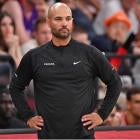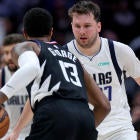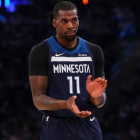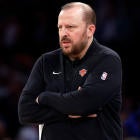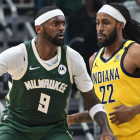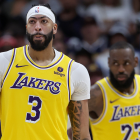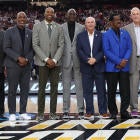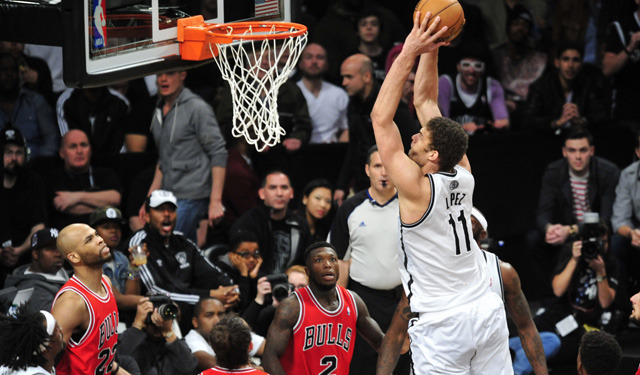
Once Brook Lopez had surgery to repair his foot and was ruled out for the rest of the 2013-14 season, the Brooklyn Nets applied for the Disabled Player Exception. The Disabled Player Exception became possible because of Lopez's status of being out for the season but it comes with a couple of complications for a Nets team that is already paying the biggest luxury tax payment in NBA history.
The NBA has approved a $5.25M Disabled Player Exception for the Brooklyn Nets, league source tells Yahoo Sports.
— Adrian Wojnarowski (@WojYahooNBA) January 8, 2014
The salary number of $5.25 million was approved because the team granted the DPE receives the lesser number of either the non-taxpayer mid-level exception or 50 percent of the injured player's salary. Lopez makes over $14 million in salary this season so they were granted the non-taxpayer mid-level exception number.
The first problem for the Nets is they don't have room on the roster to acquire a player via trade or free agency. They have 15 players under contract and would either have to release a player while still paying his salary or they would have to trade away a player and not bring back anybody in return. Likely, they'd need to include a second round pick and bring back next to nothing in return (traded player exception from a team under the cap or the option to swap second round picks that won't benefit the Nets).
Alan Anderson, TyShawn Taylor, and Tornike Shengelia are all minimum veteran contracts signed through 2015. Shaun Livingston is only signed for this season for the league minimum but considering Deron Williams' ankle issues, it wouldn't be wise to get rid of their best healthy point guard.
The second problem is signing or acquiring a player with the DPE could add another $20 million to the Nets' salary cap situation due to the luxury tax penalties, according to Wojnarowski. While that's still a drop in the bucket for Mikhail Prokhorov, a $200 million payroll for such a bad team doesn't seem like something that makes sense.














